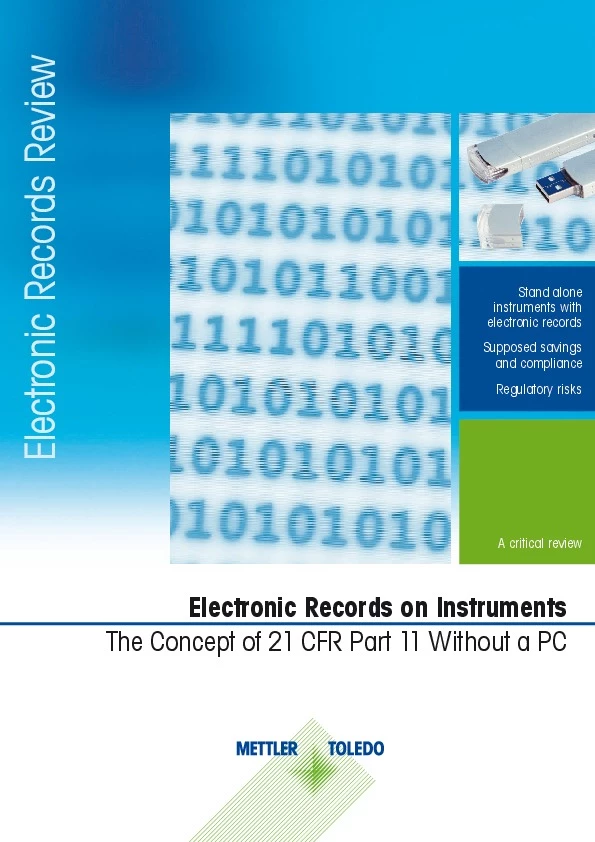21 CFR Part 11 compliant Instruments: Breaking down dangerous misconceptions
Add bookmark
QP, QC and laboratory managers are liable for lost data. Unknown to many lab professionals, a standalone system with electronic records is problematic. These systems can risk a laboratory being issued an FDA warning letter and incurring extremely high costs.
Several companies from the pharmaceutical industry have recently asked for 21 CFR Part 11 certification for instruments that are not connected to a PC, so just using the instruments’ firmware. Some instruments in the market are apparently offered with precisely such certificates, raising the customer's hope of saving costs and effort.
The general consensus amongst experts, however, is that standalone instruments cannot be 21 CFR Part 11 compliant. What may look like a solution contains workarounds that cannot ensure data integrity.
Download this whitepaper to learn about the dangerous misconceptions in the pharma industry about 21 CFR Part 11 compliant instruments.
| Benefits of reading | Challenges addressed |
|
|
Download your complimentary copy today.
 |



















